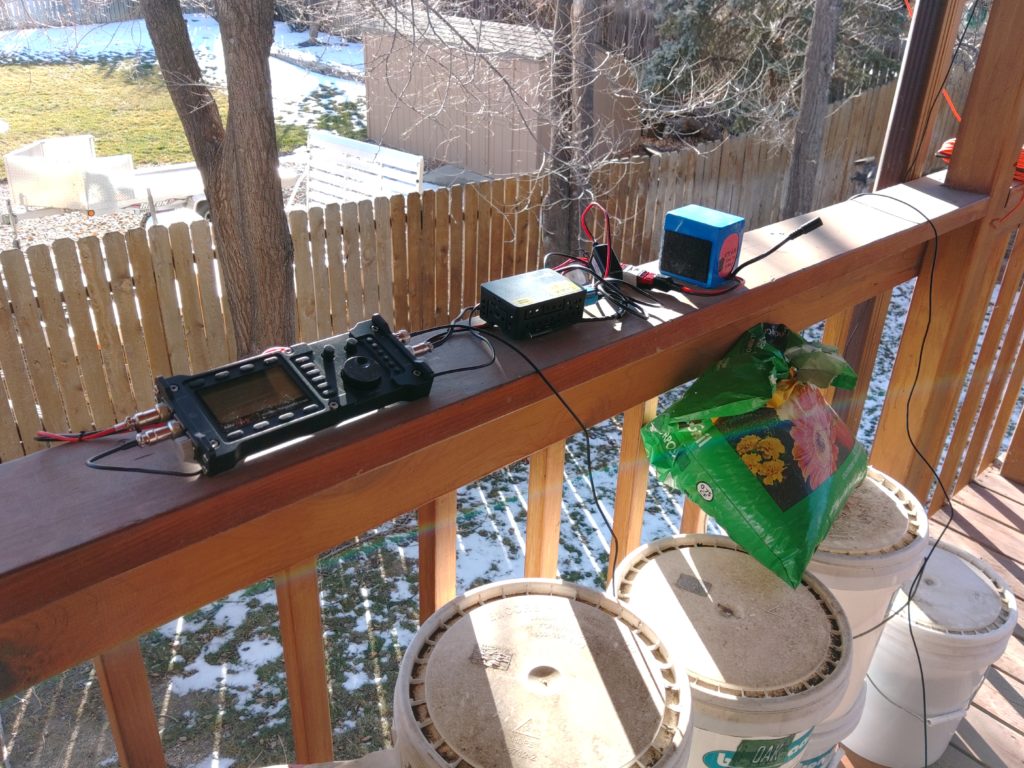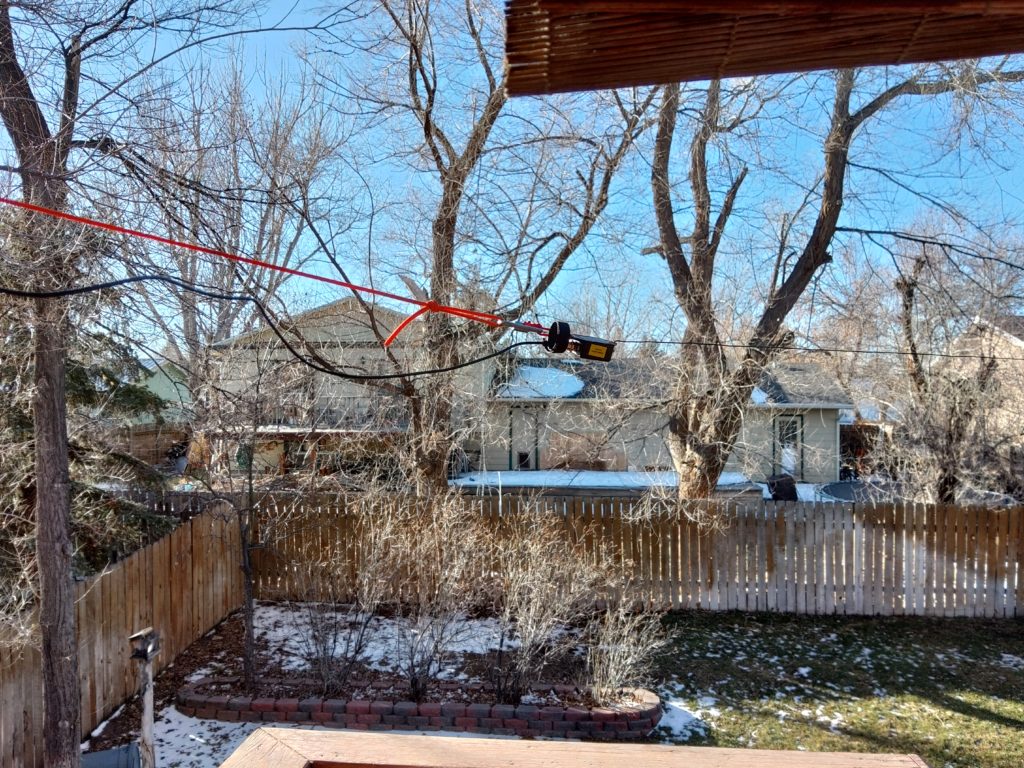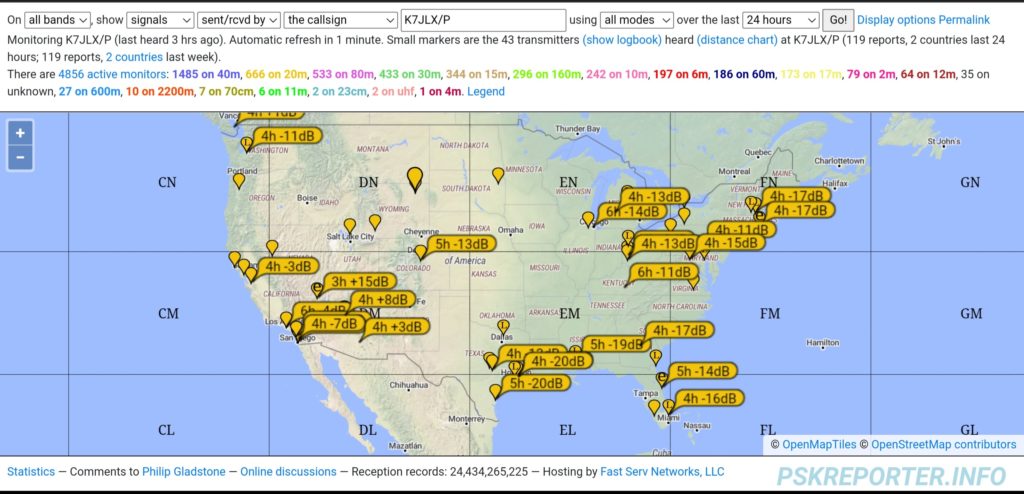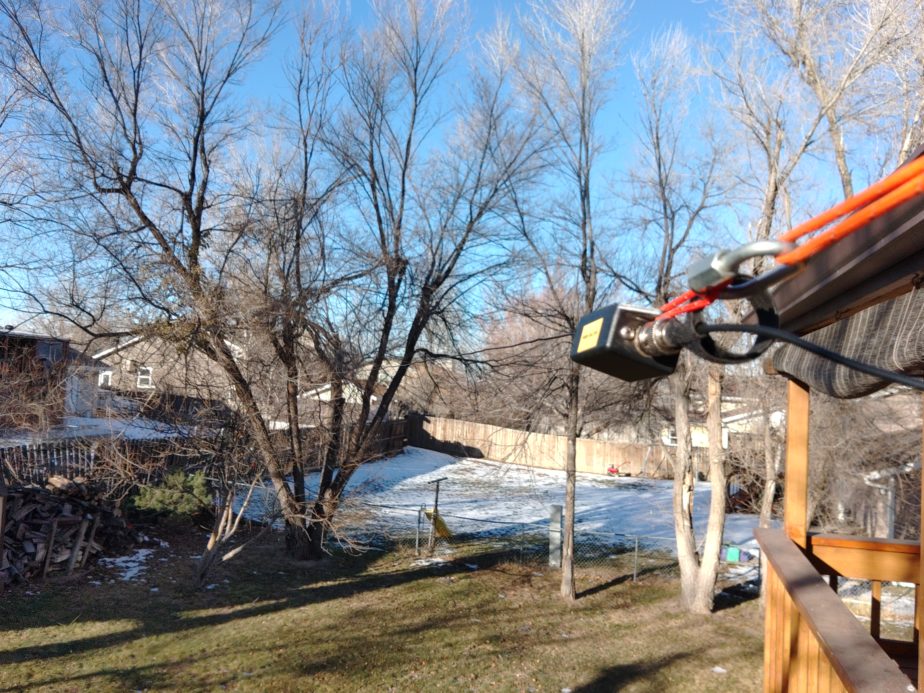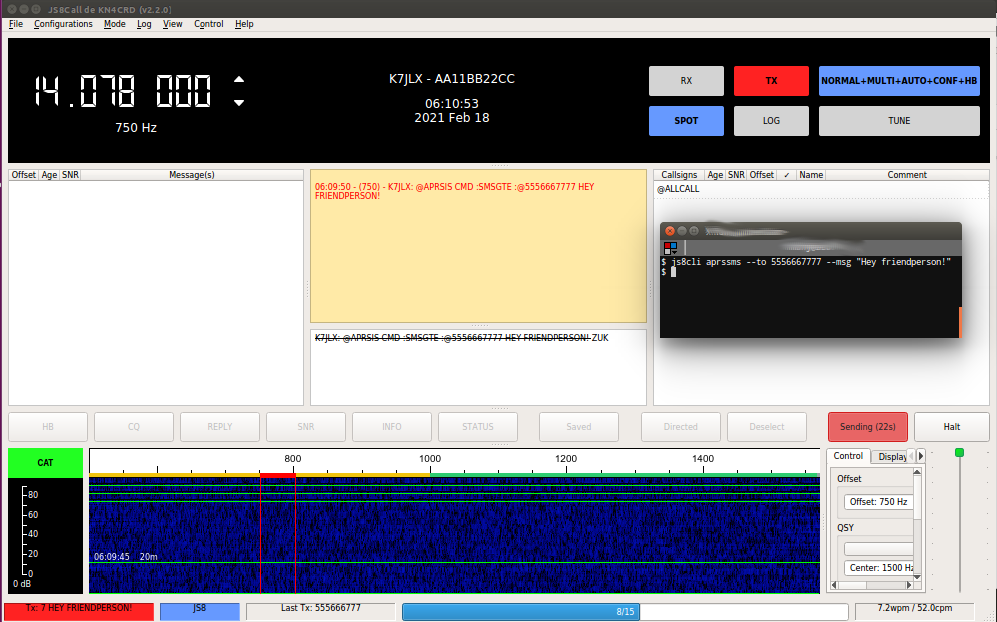Hello all, after leaving my last post in draft for a few months and not finishing it I figured I’d move right along and write another one! I had already set up my superantenna last night to do some SWL, but because the space weather is so good I decided to set up the Par EndFedz EFT-10/20/40 antenna to do some work on 20m. For today I used the arborist’s weight to hang the far end of the antenna in a tree in the back yard and connected the transformer end to the deck. The antenna was an estimated 20′ off the ground, and was oriented diagonally SE to NW across the yard. I had intended to run the antenna north to south but was unable to because the antenna was too long to be stretched from the deck to the right tree. I ended up moving it to another tree diagonally across the yard.
I made a partial contact with a Canadian ham out of Victoria, BC that suggested the solution to someone interfering with him was to “invoke the 2nd amendment” and solve the problem with a gun. Following that gem of a first partial contact of the day I decided to get off phone at that point and start operating JS8Call on 20m.
I connected the Raspberry Pi to the battery and Lab599 TX-500 and fired it all up. One of the first things I noticed was that the system clock was wrong. After using “timedatectl status” I saw that my hardware clock was right but on boot it failed to update the system clock. At that point I did it manually (“sudo hwclock –hctosys”). Since I had connected the Pi to the wifi at the house the previous night to run updates I was able to set my tablet up in the kitchen and leave the radio outside while I operated as there wasn’t enough cable to bring the radio inside. The family was around inside and it was considerably warmer in the house than it was outside so I could make QSOs and still talk with everyone that was inside. That’s one of the nice things about using keyboards and a slower mode like JS8Call – you can still talk with people while messages are being sent and received.
I made a few contacts but had a nice long QSO with W7SUA in AZ. Apart from that I was getting two way communications with stations over 1,800 miles away though they were generally automated requests for signal reports and locations.
